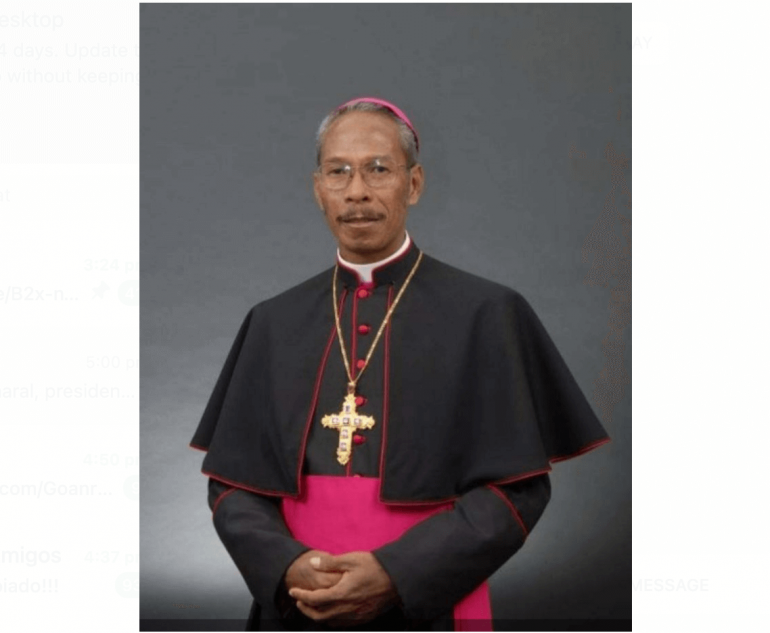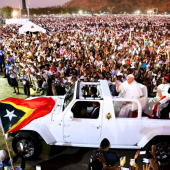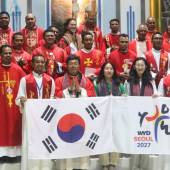Bishop calls for peace as Timor-Leste politics ‘heat up’ ahead of elections

A bishop from the Catholic-dominated Timor Leste called on political leaders to promote peace and maintain stability as the country heads into a highly heated general election on May 21.
In his statement last April, Bishop Dom Norberto do Amaral of Maliana, president of the bishops' conference in Timor-Leste, said that politicians must “take a role in maintaining peace and stability” rather than “attack each other or spread hatred in the presence of supporters.”
The prelate’s statement is timely as political analysts see Timor-Leste’s political ground as “heating up." This comes after President Jose Ramos-Horta showed up at an event in Baucau organized by his rivals from the National Congress for Timorese Reconstruction (CNRT) Party.
Ramos-Horta said that his presence at the said event was just a way to show good faith to his rival party despite being strong critics of his administration.
Amid these political standoffs, political analyst Camilio Ximenes from the National University of Timor-Leste warned that no good will ever come out of a bitter exchange of words and that it could make the general election process messier than it already is.
‘The government has to be extra careful while taking a stand and making public statements to maintain stability and avoid chaos,” Ximenes said.
The youngest country in the world, Timor-Leste, has a long history of political conflicts. Even today, there are tensions between former freedom fighters who fought for independence from Indonesia.
In 2006, five people died due to political violence, and some 21,000 fled Dili.
In May 2018, Timor-Leste held a second election just ten months after the first one, with Mari Alkatiri of Fretilin failing to secure enough support from parliament. It ended with Fretilin supporters attacking the opposition members in Viqueque and Baucau.
Radio Veritas Asia (RVA), a media platform of the Catholic Church, aims to share Christ. RVA started in 1969 as a continental Catholic radio station to serve Asian countries in their respective local language, thus earning the tag “the Voice of Asian Christianity.” Responding to the emerging context, RVA embraced media platforms to connect with the global Asian audience via its 21 language websites and various social media platforms.














